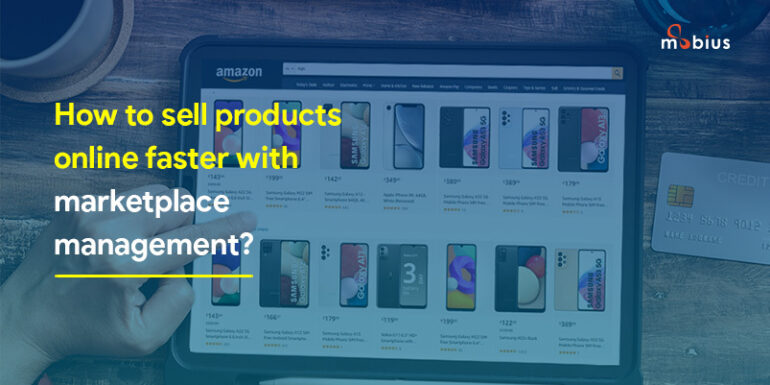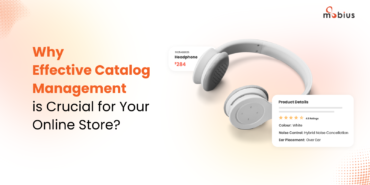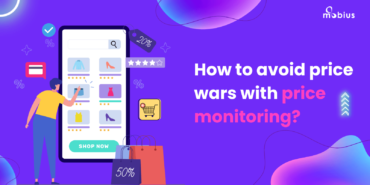The ecommerce marketplaces have regained their momentum post the onset of the pandemic. The last two years have seen a steady increase in the number of marketplaces and players. This means that the competition is more challenging for all the brands, retailers, and manufacturers involved in ecommerce selling. Effective ecommerce marketplace management can help brands, retailers, and more cut through the rising competition and sell products online faster.
The pandemic has resulted in a dramatic consumer shift towards ecommerce marketplaces. Research reveals that the ecommerce industry cashed-up $218.53 billion in the last two years owing to the aftermath of COVID.
There is only one way online businesses can establish themselves as top ecommerce players – by ensuring continued revenue growth upward. The secret to selling more is active and adequate ecommerce marketplace management. Now, let’s understand the role of marketplace management in driving your online business’s growth.
What is ecommerce marketplace management?
Ecommerce marketplace management enables businesses to seamlessly sell products on multiple top marketplaces. It helps you manage product information across ecommerce sales channels and ensure optimal product visibility, resulting in a significant increase in sales and profits.
Today, multiple popular marketplaces account for the majority of ecommerce sales. These leading marketplace giants are Amazon, eBay, Walmart, Target, AliExpress, etc. But, making your products seen on marketplaces where competition is too high for each product category is tricky.
Your product’s quality, USP, and functionality may be the best, but it won’t matter if customers cannot find your product online. To ensure that your products are easily discoverable on each of these top ecommerce marketplaces, you will need to know the nuances of each platform. Obviously, that would be time-consuming and might not be as effective.
But, by leveraging marketplace management services, you can establish your presence across marketplaces hassle-free. End-to-end ecommerce marketplace management will instantly help onboard product information and optimize product listings. There are numerous ways ecommerce marketplace management can help increase and ultimately speed up your sales. Let’s look at them in detail.
How ecommerce marketplace management enables faster selling?
Online selling is about gauging your target audiences’ attention when they land on a particular marketplace. Your product is the first thing they should see when searching for the relevant product keyword. Seeing a brand’s product in the top search results instills trust in customers.
If ecommerce marketplace management tactics are applied correctly, you can achieve the visibility you need. You will stumble across the tried and tested ecommerce best practices that help sell products online fast as you read on.
Giving your products a greater exposure
Globally, about 63% of product searches happen on Amazon. If you list your products on multiple marketplaces like Target, eBay, Walmart, etc., you will be able to cater to a larger target audience. The smart thing to do for any online seller is to have their products on marketplaces where their audience shops the most.
Online marketplaces get heavy traffic daily. Some of the ecommerce giants receive approximately 8 billion visits monthly. So, if your products are not available on the right ecommerce marketplaces, you could be missing out on the massive market share. Online shoppers love to browse to their heart’s content. Before they narrow down to buying a product from a brand, they search and compare details like price, product descriptions, availability, delivery, etc. Therefore, increasing the chances of your clicks and conversions.
Having high-quality product content
While displaying your products on multiple marketplaces is crucial to get better exposure, the work does not end there. Imagine a shopper lands on your product page to learn more about the product but does not find much information on the page. Will the shopper proceed to buy from you? Obviously, no. So, what can you do to make sure that visitors convert into buyers?
You could start by ensuring that all your product has consistent and high-quality content across marketplaces to allow the shopper to make a buying decision. Every ecommerce marketplace supports a different data format, search algorithm, and listing guidelines. You must comply with these rules to make the most out of the online shopping platform.
A shopper is more comfortable engaging with your brand if they know what it stands for. Having brand content pages lets you build a relationship with your audience. It indulges visitors in learning more about your brand and products, making it more likely that they will buy from you.
Ensuring product discoverability
It is long before a marketplace visitor becomes your page visitor and converts into a buyer. First, the visitor must find your product in the search results. Hence, you need to ensure that your product listings contain the relevant, top-performing keywords coherent with the marketplace search engine algorithms.
The best way to ensure product discoverability is by infusing these keywords into the entire product listing content, including the product titles, key features, and descriptions. Today, customers are overwhelmed with options while being short on time. Improving product discoverability allows shoppers to make quick purchases, increasing conversion rates.
Normalizing and standardizing content
Customer experience has replaced brand and price as key differentiating factors. Therefore, making it crucial for sellers to offer a consistent customer experience across marketplaces. How do you do that? You could start by ensuring that catalogs or listings of all SKUs are adjusted in a standard format.
By doing so, you will make it easier for customers to look at the information they need to make the purchase. Additionally, normalization and standardization techniques help you instantly modify the data format to fit the marketplace guidelines and onboard products.
How can ecommerce marketplace management help your business?
Successfully running your business on ecommerce marketplaces is mainly about providing an excellent customer experience and increasing customer lifetime value. Most sellers confuse ecommerce marketplace management with ensuring that delivery is quick and offering the best deals. But, in reality, it’s all about managing an ecommerce marketplace to enable faster product delivery and providing updated product information to customers.
Although, following these ecommerce best practices and processes to manage products on various marketplaces is challenging. Primarily when your catalogs house thousands of SKUs, fortunately, sellers can leverage marketplace management services to juggle these different responsibilities. The right marketplace management service will help you build and follow the right strategies to ensure your products sell faster.
The bottom line
We can help you get broader exposure, better brand visibility, and increased and faster conversion rates. The ecommerce industry is ever-evolving, and it is challenging to stay updated on the customer, competitor, and market trends. As an ecommerce marketplace service provider who has been in the game for two decades, we know what it takes to convert online visitors into buyers quickly.
If you want to learn more about effectively managing multiple marketplaces and how to sell products online faster, get in touch with us.






